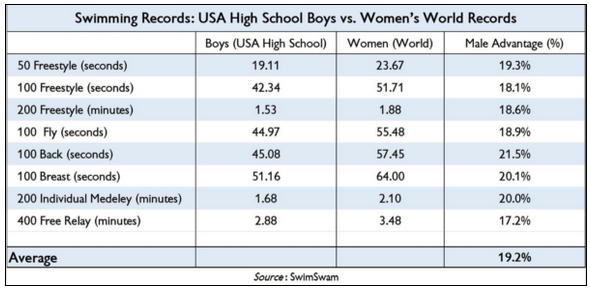Some time ago, recall, Department of Education Secretary Miguel Cardona, with the full and enthusiastic support of Progressive-Democrat President Joe Biden, put into effect a Rule (referred to as Guidance Documents in the court’s ruling) that sought to rewrite Title IX to claim that a child’s, or near-adult college student’s, claim of “self-identified” gender was sufficient to allow a boy or a near-adult male access to girls’ bathrooms, locker rooms, and athletic endeavors as “teammates.”
Texas demurred, and the Fifth Appellate Circuit Court agreed.
Among other things, the court wrote [citations included, emphasis added]:
The Guidance Documents build on previously enjoined guidance issued under President Barack Obama. See Questions and Answers on Title IX and Sexual Violence B-2, 89 Fed. Reg. 33,474 (Apr. 29, 2014) (“Title IX’s sex discrimination prohibition extends to claims of discrimination based on gender identity.”); see also 2016 Dear Colleague Letter on Title IX and Transgender Students 2, US Dep’ts of Educ & Justice (May 13, 2016) (informing educational institutions about the new “Title IX obligations regarding transgender students”). This Court enjoined implementation of these prior guidance documents as contrary to law because “the plain meaning of the term sex as used in § 106.33 when it was enacted by [the Department] following passage of Title IX meant the biological and anatomical differences between male and female students as determined at their birth.” Texas v United States, 201 F. Supp. 3d 810, 832–33 (N.D. Tex. 2016) (O’Connor, J.).
And [citation included]
…Defendants maintain that their actions will only be final when they apply these interpretations to particular factual circumstances via enforcement. But a substantive interpretation that will eventually result in investigative and enforcement activities constitutes final agency action even if an application to specific individual cases has yet to occur. Cf. MPP, 597 U.S. at 809 n.7 (noting agreement between the majority and dissenting opinions that final agency action exists when the action results in a final determination of rights or obligations regardless of some contingent future event).
And:
Regarding the first vacatur-versus-remand factor, the Department will not be able to justify its decision to create law that Congress did not pass and that the Supreme Court did not allow.
…
Not only are the Guidance Documents contrary to law and in excess of the Department’s authority, but the Department will also not be able to substantiate its decision on remand because there is no possibility that it could correct the fundamental substantive and procedural errors.
Thus, the matter won’t even be sent back to the DoEd for correction: there is no deficiency here that the department is capable of correcting.
And, as bluntly as court rulings get:
Thus, the Court applies this default remedy and VACATES the Guidance Documents on the grounds that the Department enacted a substantive rule that is contrary to law, did so in a manner beyond the scope of its legitimate statutory authority to promulgate it in the first place….
In fine, as the court emphasized at the outset of its ruling,
Having considered the briefing and applicable law, the Court concludes that Defendants cannot regulate state educational institutions in this way without violating federal law.
However, in the end, the ruling applies Texas-wide only; it does not apply to the whole of the 5th Circuit’s jurisdiction. The other States in the circuit—Louisiana and Mississippi—will have to go to the expense of bringing their own suits.
The court’s ruling can be read here.
h/t Texas Attorney General, Ken Paxton.

